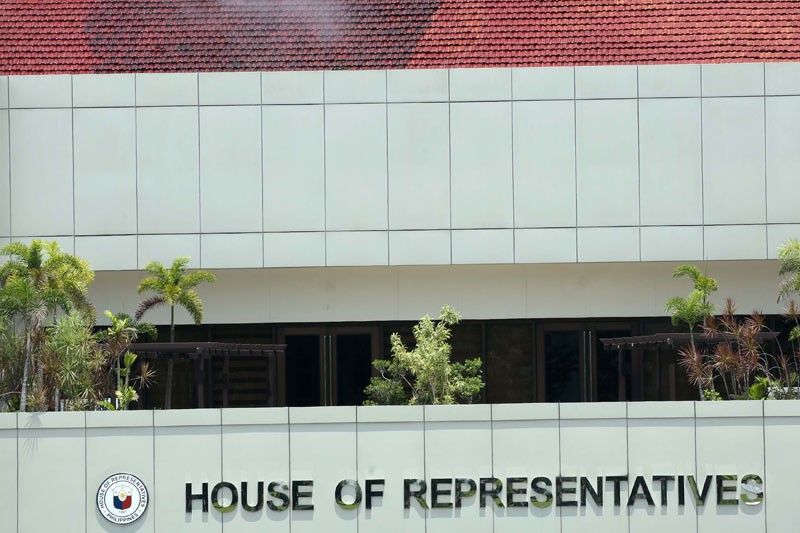Binay, Saguisag file 25th petition vs anti-terror law

MANILA, Philippines — Former vice president Jejomar Binay and former senator Rene Saguisag yesterday led a group of lawyers in filing the 25th petition questioning the constitutionality of the Anti-Terrorism Act of 2020 (ATA) before the Supreme Court (SC).
The petition for certiorari and prohibition with prayer for a writ of preliminary injunction and/or temporary restraining order (TRO) was filed by the Concerned Lawyers for Civil Liberties (CICL) led by Binay, Saguisag, former University of the President College of Law dean Pacifico Agabin, National Union of Peoples’ Lawyers (NUPL) president Edre Olalia, Adamson College of Law dean Anna Maria Abad, John Wesley School of Law and Governance, Wesleyan University-Philippines dean J.V. Bautista, former diplomat Anacleto Rei Lacanilao III, law professor Rose-Lisa Eisma-Osorio and lawyer Emmanuel Jabla.
The petitioners named President Duterte in their list of respondents along with Executive Secretary Salvador Medialdea, the Senate represented by Senate President Vicente Sotto III and the House of Representatives represented by Speaker Alan Peter Cayetano.
The CICL asked the SC to issue a TRO and/or preliminary injunction that would remain in effect while the case is pending, that would enjoin the respondents and those acting under their authority from implementing the ATA or Republic Act 11479.
After deliberations, the CICL asked the high court to declare the ATA null and void and permanently enjoin its implementation.
The petitioners questioned the timing of the passage of the ATA, when the government should be focused on providing an appropriate response to the coronavirus pandemic.
They filed the petition because they believe the ATA’s provisions are unconstitutional on three grounds – void for being vague; it infringes on the right to due process and violates the equal protection clause of the Constitution.
The ATA’s vagueness does not follow the United Nations Security Council resolution that calls on states to ensure that counterterrorism measures would comply with international human rights law, refugee law and humanitarian law.
It also creates a chilling effect that stems from the vagueness of terms used in the ATA, and with obvious overbreadth.
“Due to the vague and overbroad definitions in Section 3 and Section 4 of the ATA, the other provisions of the statute, like Sections 5, 6, 7, 8, 9, 10, 11 and 12 are implicated, and must be stricken down as unconstitutional,” CICL added.
The petitioners said the ATA also causes severe chilling effect on freedom of expression, taken in the context of recent political and social events obtaining in the country.
It pointed out that the “red-tagging” or labeling individuals or groups as communists and terrorists have posed a serious threat to civil society and freedom of expression.
There have also been concerns that the counter-insurgency policies have given rise to patterns resembling those that characterize the anti-illegal drugs campaign.
The petitioners also argued that the authority granted to the Anti-Terrorism Council (ATC) to authorize the arrest of suspected terrorists violates the guaranty of due process under the Constitution.
“It is clear from both the Rules of Court and the Supreme Court that the power to take into custody suspected terrorists under Section 29 is a form of arrest. There is no question under this law that the ATC is empowered through its police and military agents to ‘take into custody’ or to ‘arrest’ suspected terrorists,” CICL said.
Under the Constitution, the due process clause requires the existence of probable cause before a warrant of arrest is issued.
The ATA also violates the right to due process because if a person is suspected to be terrorist, suspect would be detained for 14 days and extendible for another 10 days, without criminal charge. This runs contrary to the Revised Penal Code (RPC) that states that the maximum statutory limit to deliver detained persons to judicial authorities should be within 36 hours for crimes or offenses punishable by afflictive penalties.
The petitioners said while they agree that terrorism is a criminal act that destroys society and must be stopped to preserve the country’s security and democratic way of life, “for a democratic country like the Philippines, with the Constitution that we have, at the core of the right of the State to employ counterterrorism measures for self-preservation must be found the bedrock of human rights and civil liberties.”
“The Anti-Terrorism Act of 2020 fails miserably to protect and preserve the guarantees of human rights and civil liberties enshrined in the Constitution and therefore must be struck down,” they added.
- Latest
- Trending






























